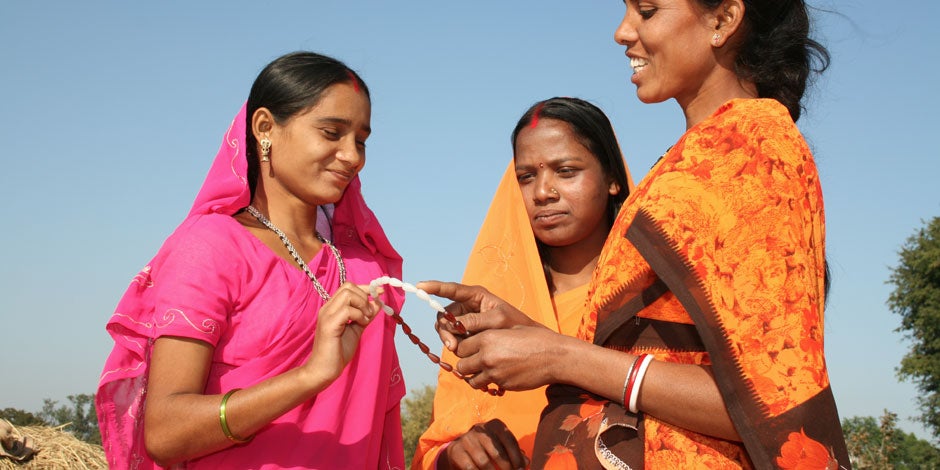FAM: Faith-based Organizations

Expanding family planning options for couples requires commitment from all sectors of society, including the faith sector. Faith-based organizations (FBOs) play an important role in communities around the world, particularly with regard to health. In many African countries, FBOs provide 30-70% of the health care services, especially in rural areas and have a large potential to provide family planning information and services. IRH recognizes the important role of FBOs in global health and, under the FAM Project, has supported efforts to strengthen the role of FBOs in family planning service delivery.
Fertility awareness-based methods (FAM) and FBOs
Under the FAM Project, IRH has collaborated with Catholic, Protestant and Muslim FBOs to expand family planning options to underserved populations while helping FBOs increase services to their communities. This partnership has led some FBOs to offer family planning for the first time because FAMs are an acceptable way to promote healthy timing and spacing of pregnancies. These methods are culturally appropriate in numerous settings and also consistent with many religious beliefs. FAMs are easy to offer and can be provided by non-clinically-trained staff, particularly community health workers and religious leaders. These methods are modern, effective, and knowledge-based and do not require special equipment, facilities, or costly commodities.
The FAM Project has provided training and other assistance to FBOs seeking either to expand the family planning options they currently offer or integrate family planning into their services for the first time. As a result of these partnerships, FBOs have gone on to provide training in these methods to their networks and, in some instances, have served as a technical resource to public sector programs.
Consultation on Faith, Family Planning and Family Well-being
The FAM Project led an initiative to explore how to more effectively engage Muslim and Christian organizations in addressing healthy timing and spacing of pregnancies to improve the health of mothers and infants. The initiative began with an information gathering phase, conducting open-ended interviews with Muslim and Christian stakeholders from Ethiopia, Mali and Kenya as well as individuals from the secular global health community. The interviews highlighted perceptions that faith-based and secular communities have of each other and the impact these perceptions have on partnerships between them.
The information was compiled into a summary report which informed the discussion of a technical consultation at Georgetown University in April 2011. With a strong emphasis on dialogue and collaboration, participants of the consultation shared numerous examples about successful partnerships between secular and faith-based organizations as well as interfaith partnerships resulting in improved access to family planning information and services.
 Where We Work
Where We Work  Press Room
Press Room  FACT Project
FACT Project  Passages Project
Passages Project  Learning Collaborative
Learning Collaborative  Search All Resources
Search All Resources  Social Norms
Social Norms  Fertility Awareness Methods
Fertility Awareness Methods